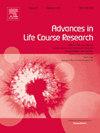易受影响的岁月:生命历程的转变如何塑造青春期和青年期的性别意识形态。
IF 3.4
2区 社会学
Q1 Medicine
引用次数: 0
摘要
本研究探讨了青春期和青年期特有的生命历程转变如何影响男性和女性的性别意识形态。童年后,年轻人接触到的新环境以不同于父母的方式塑造了他们的信仰。通过将生命历程视角与性别概念化作为一种社会结构以及基于兴趣和暴露的解释相结合,本研究有助于更细致地理解变化机制。它通过研究特定年龄的转变的作用扩展了文献:进入职业培训,大学,就业,恋爱关系和同居。使用来自德国家庭面板的代表性数据,我进行了固定效应回归分析,其中包含性别相互作用项(n = 2888个人,年龄15-27岁)。为了解释性别意识形态的多维性,我使用了单独的态度项目。结果显示,上大学与公共和私人领域对性别平等的支持增加有关,尤其是对年轻男性而言。向职业培训的过渡与公共领域平均主义的增加有关,而向就业的过渡大多没有额外的影响。当他们进入异性恋关系时,结果是有性别差异的:女性在母亲就业方面变得更加传统,而男性则更加支持平等分担家务以及女性和男性的照顾角色。同居时,女性会减少对家务均分的支持。总的来说,研究结果表明,年轻人的性别意识形态可能会在早期形成阶段之后持续变化,而生活过程的转变可能对他们的形成至关重要。本文章由计算机程序翻译,如有差异,请以英文原文为准。
Impressionable years: How life course transitions shape gender ideologies across adolescence and young adulthood
This study examines how life course transitions unique to adolescence and young adulthood affect gender ideologies of men and women. After childhood, young people are exposed to new contexts that shape their beliefs in different ways than parents. By integrating a life course perspective with the conceptualisation of gender as a social structure and interest- and exposure-based explanations, this study contributes to a more nuanced understanding of change mechanisms. It extends the literature by examining the role of age-specific transitions: into vocational training, university, employment, romantic relationships, and cohabitation. Using representative data from the German Family Panel pairfam, I conducted fixed-effects regression analyses with gender interaction terms (n = 2888 individuals; ages 15–27). To account for the multidimensionality of gender ideologies, I used separate attitude items. Results show that attending university is associated with increased support for gender equality in the public and private sphere, particularly for young men. Transitions into vocational training are related to an increase in public sphere egalitarianism, while transitions into employment mostly did not have an additional effect. When they enter heterosexual relationships, results are gender-specific: Women become more traditional regarding maternal employment, while men increase their support for equal housework sharing and both women’s and men’s caretaking roles. With cohabitation, women decrease their support for equal housework sharing. Overall, the findings suggest that young people’s gender ideologies can be subject to persistent change beyond early formative years and that life course transitions may be crucial in shaping them.
求助全文
通过发布文献求助,成功后即可免费获取论文全文。
去求助
来源期刊

Advances in Life Course Research
SOCIAL SCIENCES, INTERDISCIPLINARY-
CiteScore
6.10
自引率
2.90%
发文量
41
期刊介绍:
Advances in Life Course Research publishes articles dealing with various aspects of the human life course. Seeing life course research as an essentially interdisciplinary field of study, it invites and welcomes contributions from anthropology, biosocial science, demography, epidemiology and statistics, gerontology, economics, management and organisation science, policy studies, psychology, research methodology and sociology. Original empirical analyses, theoretical contributions, methodological studies and reviews accessible to a broad set of readers are welcome.
 求助内容:
求助内容: 应助结果提醒方式:
应助结果提醒方式:


